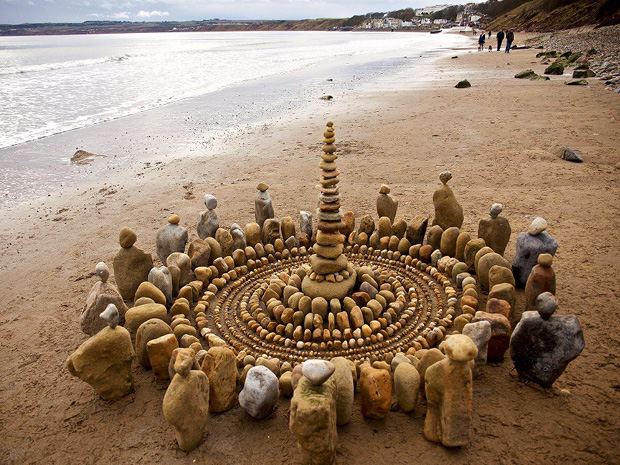It’s Friday, 11:20 a.m. and I am so frustrated with my little charge, Giuliana. I just picked her up from school and we are driving back to the house when she asks me what we’re going to do when we get home. I tell her that she can play while I finish up a few chores. “Can I watch TV?” she inquires immediately, and I say no. Because too much TV isn’t good for her. Because she has the ability to play for hours on her own, imagining worlds for her dolls to inhabit and creating voices and conversations for them with incredible ease. Because it’s not the best timing. Because—and this sounds bold to say—I know more than her, can see a bigger perspective, and I want what is Good for her. I don’t explain all of this, of course. I just say, “No, not right when we get home. You can watch some TV later, but first just enjoy playing.”
But she has zeroed in—with a skill mankind has been cultivating for thousands of years—on the one thing she cannot have. Ignoring the vast sweep of all that she is free to enjoy, she can only see one thing—the thing currently denied to her. She is convinced not only that TV is the one thing that will make her happy, but also that I am keeping it from her out of malice. Her large brown eyes fill with glistening tears and she rages, shaking with fury in her car seat, “Why can’t you let me watch it ONE DAY, Carolyn???? Why can’t you be nice to me for ONE DAY????”
I am annoyed—tired of her immaturity, weary of her demands, wishing she could be content and grateful and trust in my goodwill toward her. I look up at her in the rear-view mirror, and am shocked when I see not an angry six year old, but myself. It is only an instant, but I know it has been a split second of divine revelation—a moment for the scales to fall from my eyes, an out of body experience—to see myself clearly, as I really am. And I’m ashamed. Ducking my eyes to avoid Giuliana’s gaze, I try to calm my racing heart and steel my voice to speak with the patience I desperately want extended to me. “I know you’re mad at me, and it’s okay to feel angry, but I want you to know that I am not trying to be mean to you. I love you and I want you to be happy and you just need to know that I am not trying to hurt you.” The words are coming from my own mouth, but I am hearing the Voice of God. The drive home is not long, but for the rest of the ride I am lost in the realization that I have spent weeks and months seeing only the one thing I do not have: a baby.
Our baby, tinier than a sesame seed, slipped away from us on the 4th of July, 2011. And I sat numbly, and watched fireworks burst over my head, and ached for the child I would never hold on Earth. For months, all I could see as I lived each day was the space where he was not. All I could feel was emptiness. Then, in October, we named him, and the Naming gave him a space in which to be, like building a home for him to permanently inhabit, and knowing that no amount of time or weather or loss could destroy that structure. I no longer felt his absence, but his presence—the closeness and intimacy of love that will never forget or fade away. A name can bring much healing.
With the healing, however, came the renewed ability to dream and desire. I wanted another baby—not to replace the one who died, but to add to our family, add to our lives, add to our love. Just as I do not criticize myself for my grief, I am most definitely not criticizing myself for this desire for a child—I believe it to be one of the best, and most selfless desires I’ve ever known. I’m just wary of the moments when this one thing that I want becomes all I can see, and when I, too, become overwhelmed by the shaking, crying demands to have it now.
My epiphany with Giuliana brought me up short. I held the new thought in my mind, the way one holds a newborn baby in one’s arms: gently, wonderingly, staring into the face of God. What matters is being able to trust the intentions of your Caregiver. I obviously needed an example in this, and Giuliana stepped up to the plate. By the time we reached home, her anger had dissipated. She didn’t mention watching TV again. Instead she went happily to her toys—many and wonderful—and threw herself wholeheartedly into what she had been given to enjoy. I watched her, and marveled at her willingness to trust me, to let go of her demands, and to embrace all that was given to her with zest and joy. I want to be like her, and I suppose that each day I open my arms wide to all that I’ve been given and trust that my Caregiver has loving intentions toward me, I am like her.
What I did not expect when I chose to become a nanny is that taking care of children would teach me how to be a good child. I thought I would be gaining experience in discipline and leadership, organizing schedules and exercising authority. A lot of that has happened, yes; but the most profound and beautiful lesson I’m learning is how to be a good child—not a good child in the moral, you-must-be-obedient-and-eat-your-vegetables-and-wash-behind-your-ears sense of the term, but more like the proper posture in which to stand as a child. I can inhabit a humble and trusting position—one in which I am comfortable expressing my wants and needs, and am even free to express the anger, rage, and darkness I so often feel. But in the end it is a stance that trusts in the kindness and love of the One who cares for me—an attitude of acceptance that all that I cannot see or know right now is known and seen by Him who loves me perfectly.
“Behold the One beholding you and smiling.”





7 Comments
Leave your reply.